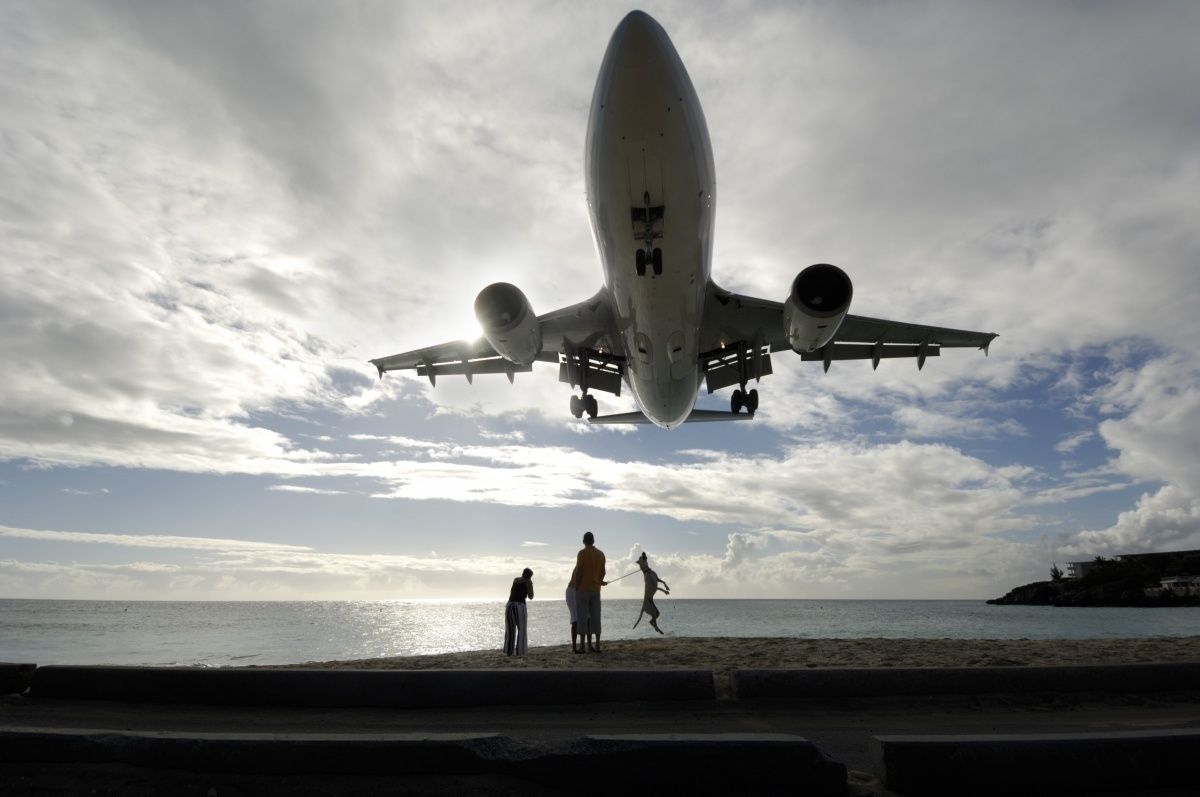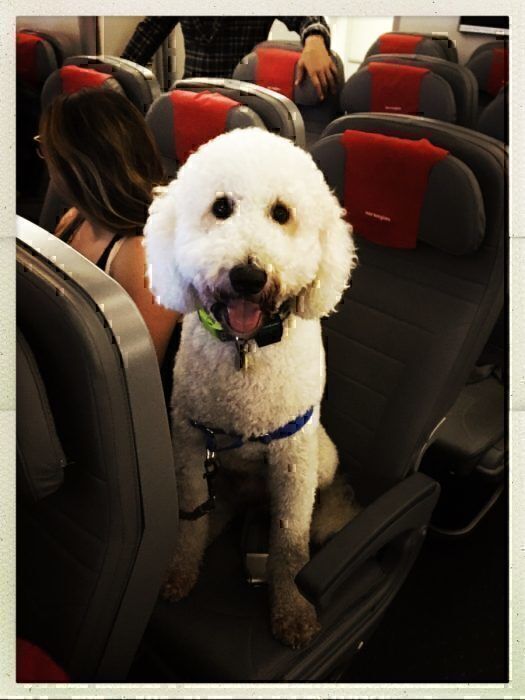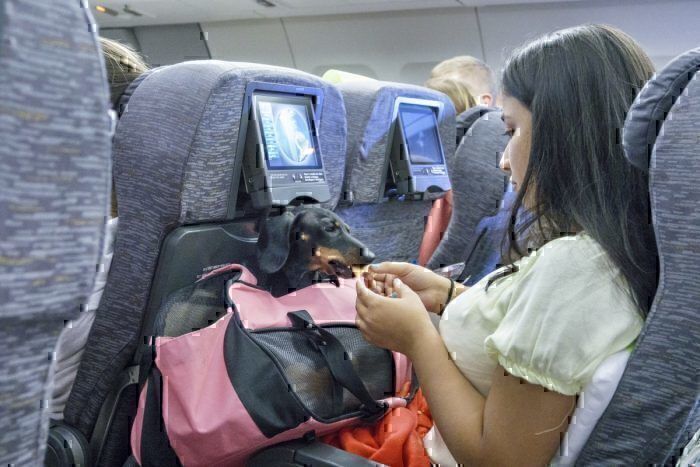We shared the news last week that the US Department of Transport (DoT) is floating the possibility of banning emotional support animals (ESA) from aircraft. The ban would affect all ESAs, regardless of breed of behavior, although the proposal does state that airlines will have some say in what animals are allowed to board. We talked to Prairie Conlon, a licensed mental health professional and the world’s leading emotional support animal expert, to get her take on the proposed ban.
An expert opinion on the DoT ban of emotional support animals
Prairie is a licensed mental health professional and is considered the world’s leading expert on Emotional Support Animals. She is the Clinical Director of Therapetic and consults for CertaPet, one of the largest telehealth companies in the nation.
We talked about the proposed DoT ban on ESA’s traveling in the cabin of aircraft. Prairie had some quite firm opinions on this, and labeled it ‘discrimination’ to blanket ban all registered ESAs. She told me,
"This proposed rule is a step in the right direction, although the aim may be a little off. Emotional support animals as part of a treatment plan have been utilized for decades, they are not anything new. They have just recently gained attention in the last several years due to several things: the increase in ESAs as our society looks for alternative non-invasive therapies such as yoga and meditation, the charade of bizarre and exotic animals people are claiming are ESAs, and the lack of regulations on online companies popping up and selling rubber-stamped ESA letters.
“ I don’t see how they can say yes to a dog flying for a fee of $150 but no to a dog that has a licensed clinician's signature on it. That's textbook discrimination against mental disability. This proposed rule would be eliminating the ability of all clinicians and doctors to utilize this treatment for their clients with mental health concerns, when the goal should actually be to eliminate the fraudulent sites that are enabling the scammers.
“The solution is simple. These so-called online telehealth companies need to be vetted for their process and regulated so we don’t have things like beer, beehives, and peacocks being “certified” as emotional support animals.”
I think we can all agree on that. Having a trained and certified ESA in the cabin is something quite different from rubber-stamping any old creature as a support animal. But, to understand the direction in which the DoT should be moving, perhaps we need to better understand the role of an ESA from the get-go.
What exactly is the role of an emotional support animal?
I asked Prairie to explain what a true ESA should be, and the role it performs for its user. She told me,
“An emotional support animal, simply put, is a specific animal prescribed by a health professional for an individual to help relieve their mental health symptoms. They are not required to be specially trained like service dogs, however, they are expected to behave appropriately and not cause disruptions or damages.
“Emotional support animals have privileges in housing situations, where they are not to be charged pet fees and can be allowed in no-pet situations, and in travel situations where they are allowed to bring their animal with them in the cabin without any pet fees. ESAs do not have the same privileges that Service Animals do, and are not allowed in public places.”
There’s often some confusion between ESAs and service animals. Service animals, such as guide dogs, are highly trained and impeccably behaved, which is why there has been no such outcry about these types of creatures on aircraft.
Support animals should be trained and should exhibit restraint and good behavior. However, as Prairie says, the issue is that there are many unscrupulous companies out there who can rubber-stamp any animal as an ESA for a fee. We’ve heard it all, from peacocks to squirrels, hamsters to ducks… many of these animals do not have the intellect let alone the temperament to be trained to behave, particularly in a scary and unfamiliar situation like being on a plane.
What about those with genuine ESAs?
While a blanket ban on ESAs will serve to prevent bad behavior in the cabin, it seems that the ones missing out most will be the handful of people with genuine ESAs that they’d like to travel with. I asked Prairie, what would be the impact on people that use ESAs if the DoT does ban them from flights? Would having the animal in the hold be sufficient? She explained,
“ESAs are prescribed for a variety of reasons, from sleep difficulty, panic attacks, depressive episodes, and phobias to name a few. There are several scenarios to consider when examining negative impact on removing ESA’s from their owner and placing them in cargo.
- The ESA may have been prescribed for the acute anxiety experienced during air travel. Many individuals are looking to find alternatives to popping a Xanax or having a few alcoholic beverages to relax because they don’t want to feel groggy or impaired when they get to their destination, especially for those who travel for work. In this scenario, removing the ESA could have a big impact on those who have found their ESA to improve their travel experience without having negative side effects.
- The ESA may have been prescribed for daily support for depression or anxiety symptoms, or sleep difficulty. When traveling, you often hear that you should bring necessities with you in your carry-on because if your baggage is lost, you want to be able to have your medications and self-care items so you can properly function at your destination. An ESA is a part of a prescribed treatment plan, and whether or not you are traveling for business or pleasure, you wouldn’t leave your sleep aid behind.
- In the last three years, there have been almost a hundred deaths from animals riding in cargo, and a multitude of injuries and animals that are “lost” during transport. Many consider their animal part of their family, especially those who find that their animal helps to relieve their mental health symptoms. Misplacing or losing an animal in an accident could have heavy implications on someone who is already struggling with their mental health. Placing an individual’s ESA in cargo hold could well induce an array of additional mental health symptoms.”
This perspective certainly gives some food for thought. While it’s true most of us wouldn’t leave crucial medication either at home or in the hold when we travel, you still have to wonder who would be prescribing ponies, roosters or monkeys as part of a treatment plan.
In truth, they probably aren’t. Strange and unconventional animals are rarely prescribed by professional practitioners. Certapet’s site states that most dogs and cats can be certified as ESAs. While it’s true that any pet, if it alleviates the symptoms of the condition, can be certified, it’s important to be realistic too. Pigs and horses could be ESA certified for housing, but to travel in an airline cabin? Tricky.
So what’s the solution?
With the DoT proposing an outright ban on ESAs in aircraft, genuine ESA owners are facing the prospect of either traveling without their needed companion or not traveling at all. This seems wholly unfair to these individuals, but at the same time, there have been numerous incidents with ESAs in the past that have jeopardized the safety of the plane. What’s the solution? Prairie told me,
“Several things need to happen here. First, there needs to be an educational system for doctors and clinicians who want to utilize ESAs as part of clinical treatment plans. Although we are not veterinarians, a screening process should take place that discusses the history of the dog's behavior and common sense should be used on the clinician's part, with recommendations about further training.
“Secondly, we would like to see clear cut regulations stating basic training requirements for those who are seeking to use their animal as an ESA. This shouldn’t have near the magnitude of training required for Service Animals, which takes years and thousands of dollars, but some basic obedience with a passing grade isn’t beyond reason.”
What do you think about the proposed ban on ESAs? Should there be better certification, or is it right to simply ban them all? Let us know in the comments.




